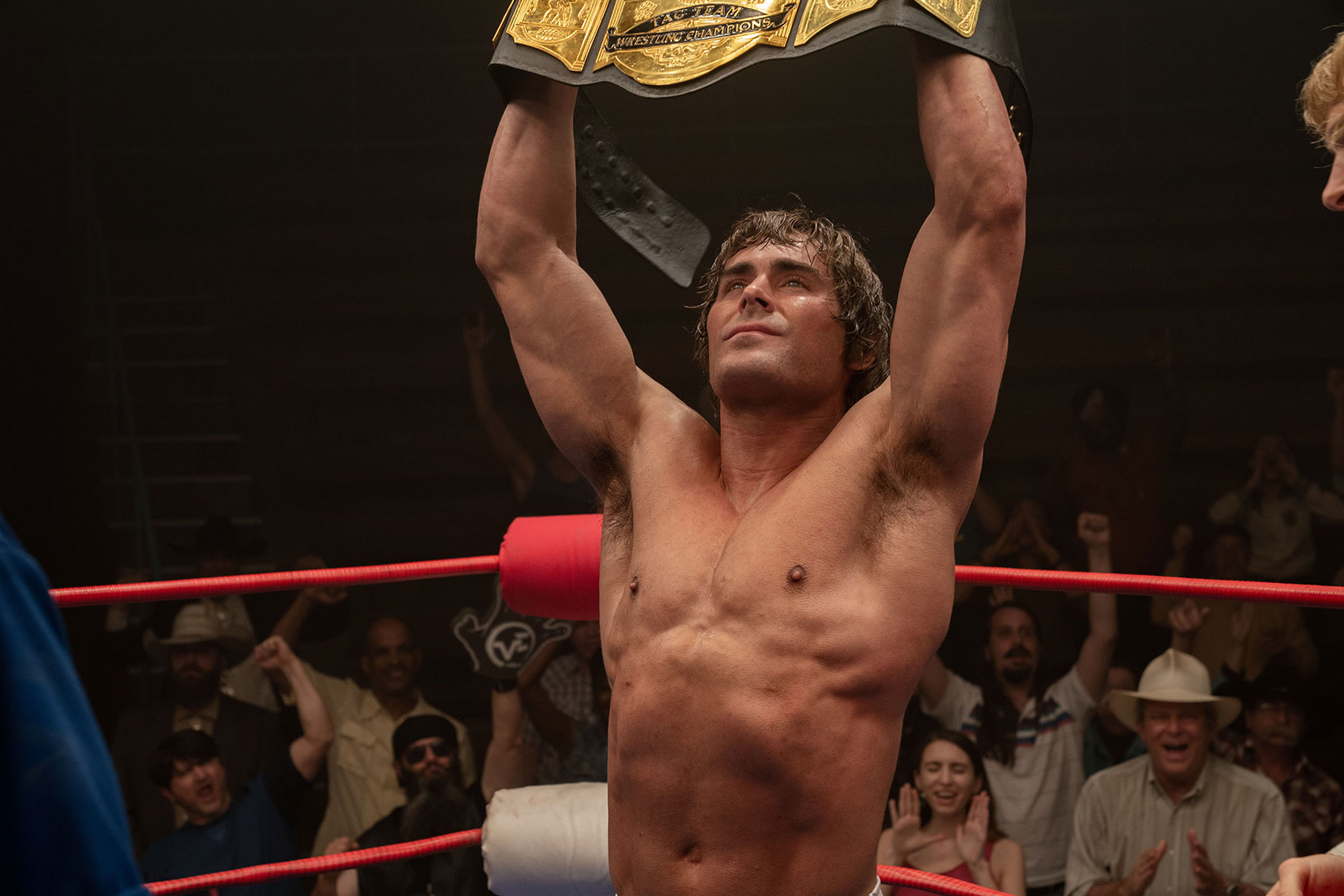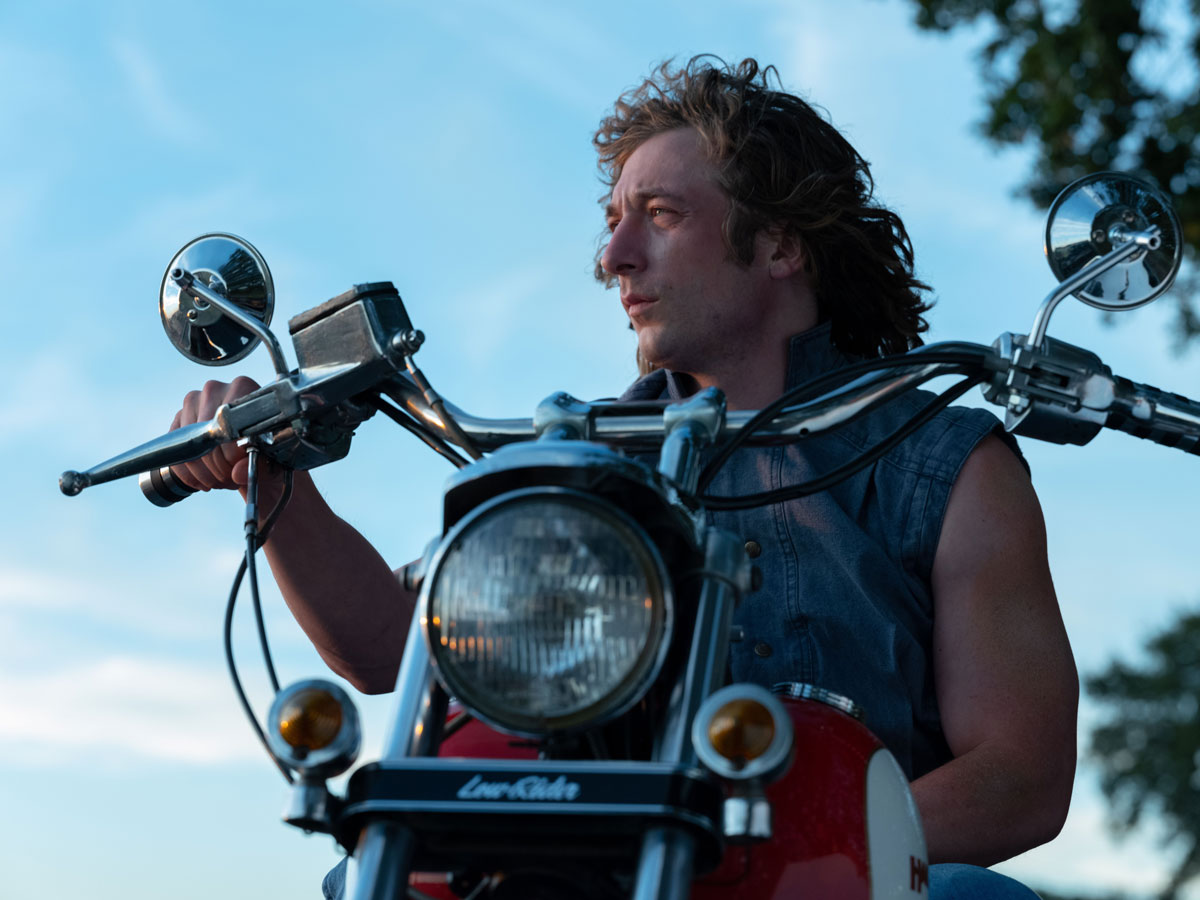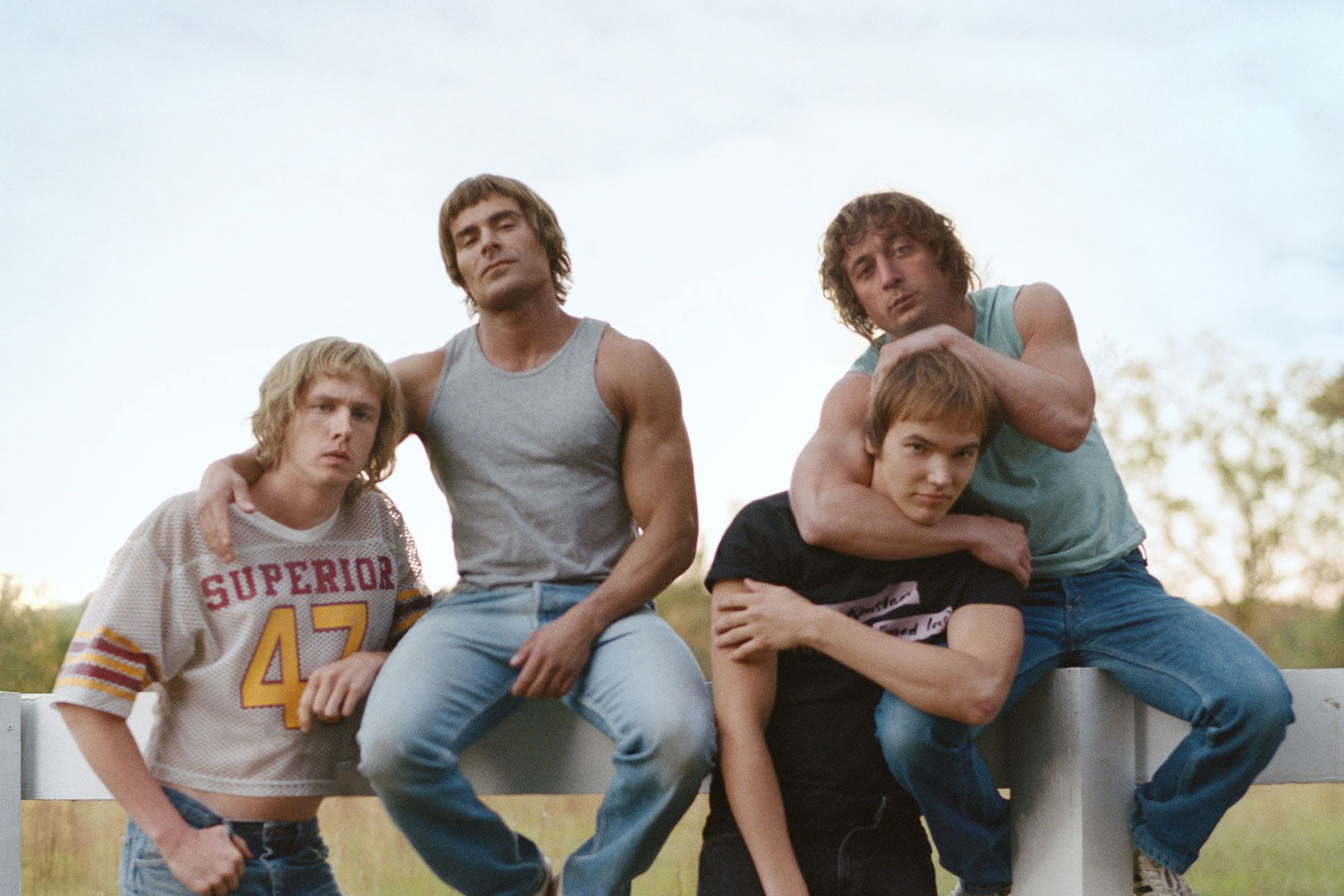The trailer for Sean Durkin’s “The Iron Claw” touts a sports drama about the real-life Von Erich brothers: the feather-haired, Herculean muscled, cutoffs-wearing scions of National Wrestling Alliance legend Fritz Von Erich (Holt McCallany). It's clear that the four sons – with an exceptionally sturdy looking Zac Efron as the eldest – are inseparable, but also very much exist under the proverbial thumb (claw?) of their father’s influence. In this family, wrestling is non-negotiable, part and parcel of their everyday existence living in 1980s Texas.
The film's gorgeous photography and nostalgic lens give the impression of a specific type of cinema offering – one that is saturated with familial drama, a couple tosses of the ol’ pigskin and fuzzy platitudes about hard work ethic and what it means to be a man. Not suicide.
"Suicide is complex, and we as human beings have this need to understand."
However, there's no denying that suicide is one of the most indelible aspects of the film because “The Iron Claw" chronicles the true story of the multiple tragedies that befell the Von Erich family. In real life, by the time patriarch Fritz Von Erich died of cancer in 1997 at age 68, five of his six sons had died. Three of them lost their lives to suicide. We see two of those in the movie.
Early on in "The Iron Claw," oldest brother Kevin Von Erich (Efron) tells his girlfriend Pam (Lily James) about the family's supposed multi-generational curse that claimed the life of Jack Jr., his parents' firstborn. The chain of tragic events that follows gives credence to this superstition. While on a wrestling tour in Japan, second-eldest David (Harris Dickinson) dies in his hotel room from enteritis. Then, at different points in the movie, brothers Mike (Stanley Simons) and Kerry ("The Bear's" Jeremy Allen White) take their own lives after each sustains major injuries. These actions are the culmination of major mental health issues, ostensibly brought on by unrelenting parental pressure and a family dynamic that seems hesitant, if not altogether allergic to the notion of speaking openly about emotions.
 Zac Efron as Kevin Von Erich in "The Iron Claw" (A24)
Zac Efron as Kevin Von Erich in "The Iron Claw" (A24)
Suicide in TV and movies
Many might recall the controversy surrounding Netflix's high school drama “13 Reasons Why,” which stunned viewers in 2017 with its incredibly graphic depiction of the main character’s suicide. Though it was far from the first time suicide had been portrayed onscreen, the inclusion of that scene was so hotly debated that it was ultimately excised altogether more than two years after the episode it was featured in premiered.
Given that research and data have previously demonstrated that fictionalized on-screen depictions of suicide can lead to an increase in suicidal ideation or suicide outright (“13 Reasons Why” was reported to have done so), why are we still seeing it in media?
“Suicide is complex, and we as human beings have this need to understand,” said Scott Langenecker, Ph.D., a clinical neuropsychologist and a Professor in the Department of Psychiatry and Behavioral Health at The Ohio State University. “There’s an old saying that the movie is always worse than the book — and there’s a reason for that, right? Because the book has the ability to go through the complexities, to add details and different points of view. When you’re thinking about a movie or TV adaptation, there’s a storytelling element to it, and part of that loses the complexity of, ‘What is the reality of suicide?’”
Emily Lund, Ph.D., C.R.C, an assistant professor of counselor education in the department of educational studies in psychology, research methodology and counseling at The University of Alabama, noted, “We know it’s powerful cinematically,” despite the documented risk.
“I think for directors, from an artistic point of view, they want to have a powerful scene or they might not know the risk,” Lund added. “Or they might not consider what they’re doing if they’re thinking of it from an artistic, cinematic point of view and not so much from a psychological point of view.”
 Stanley Simons as Mike Von Erich in "The Iron Claw" (A24)When it comes to mitigating potential risks associated with viewing a film like “The Iron Claw,” Langenecker, who volunteers with and is an advocate for the American Foundation for Suicide Prevention, said that trigger warnings or disclaimers about fictionalized depictions could be useful in clarifying certain complexities. After seeing the film himself, Langenecker concluded, “My take is that the writer had no intention to cross lines,” and felt the film’s meaning was to “portray the tragedy of the family story and then the redemption or recovery” of Efron’s character.
Stanley Simons as Mike Von Erich in "The Iron Claw" (A24)When it comes to mitigating potential risks associated with viewing a film like “The Iron Claw,” Langenecker, who volunteers with and is an advocate for the American Foundation for Suicide Prevention, said that trigger warnings or disclaimers about fictionalized depictions could be useful in clarifying certain complexities. After seeing the film himself, Langenecker concluded, “My take is that the writer had no intention to cross lines,” and felt the film’s meaning was to “portray the tragedy of the family story and then the redemption or recovery” of Efron’s character.
But is there any merit in including suicide in film and television? In the case of “The Iron Claw,” the seismic loss of Mike and Kerry (and in real life, another brother, Chris, whose death was omitted because Durkin felt the film "couldn't really withstand" a third suicide) is integrally braided with the rest of the film’s plot. For Lund, there is not much of a benefit. “I feel like there are ways to create a piece of media that is still authentically powerful and still conveys the story without adding in that additional risk that may be caused by having a graphic scene,” they said. “I feel like it’s hopefully possible to do that and portray suicide in a way that doesn’t create that temptation effect.”
How "The Iron Claw" depicts suicide
According to Langenecker, the movie oversteps several guidelines from the American Foundation for Suicide Prevention for what should and shouldn’t be discussed or depicted regarding suicide in media. In the film, viewers Mike leaves a note that indicates his intention to end his life before wandering off into the fields near the family home at night, only to be discovered the next day. Later, sometime after Kerry has lost his right foot in a motorcycle accident, he calls Kevin to tell him the Von Erich curse has become too heavy to bear. Shortly thereafter, Kevin finds Kerry dead in the family’s front yard. In both instances, the movie provides enough details to indicate the manner of death for each brother.
“Illustrating a method of suicide is generally viewed as crossing a line,” Langenecker said. “I think folks offhandedly think, ‘Well if they're gonna think about suicide, they're gonna think about methods anyway.’ But there's data showing that when methods are illustrated or depicted it can reduce some of the mental or emotional barriers around the desire to live.”
 Jeremy Allen White as Kerry Von Erich in "The Iron Claw" (A24)Langenecker also singled out the movie’s inclusion of suicide notes, which Durkin said he quoted verbatim from the real ones, per USA Today. “One of the strongest myths that still persists is that people have a logical reason for why suicide is considered,” Langenecker said. “Those of us who work in the field recognize that people are in a tremendous amount of emotional pain and they feel trapped and they feel like suicide might be a way out.
Jeremy Allen White as Kerry Von Erich in "The Iron Claw" (A24)Langenecker also singled out the movie’s inclusion of suicide notes, which Durkin said he quoted verbatim from the real ones, per USA Today. “One of the strongest myths that still persists is that people have a logical reason for why suicide is considered,” Langenecker said. “Those of us who work in the field recognize that people are in a tremendous amount of emotional pain and they feel trapped and they feel like suicide might be a way out.
"People who are having suicidal thoughts will often try to communicate that with people in some way."
"But the data suggests that people who have attempts and survive come to view it in a different way, which is that their thinking was a little bit off — maybe from substances, maybe just because of the mental illnesses that were occurring at that time. And with time and clarity they realize that that wasn't a good option. It wasn't a good solution to the challenges that were facing them. And so I think an honest depiction of those things in media really should come at it from a perspective of, ‘Ten years down the road, how is this going to be viewed?’”
There is, however, a strong nugget of truth to how “The Iron Claw” illustrates Kerry’s reaching out to Kevin shortly before he dies. As Lund noted, “We do know that people who are having suicidal thoughts will often try to communicate that with people in some way."
“They may not say, ‘I’m thinking of doing this to myself, but they may say something like, ‘I’m feeling like I can’t get out of this,’ or ‘If anything happens, please make sure you take care of my relatives,'" Lund continued. "So people will often give indications, and that’s why it’s important for us to know what those indications are so we can pick up on them.”
It’s unfortunate then, that one of the most poignant and peaceful moments of the film also serves as perhaps its most ethically egregious. As Kevin sits with his brother Kerry's body— which is laid across the family dining table — the audience has a vision of a brotherly reunion in the afterlife. Mike and Kerry are joined by Jack Jr. and David. The scene is quiet and bucolic, a seeming panacea Kevin has constructed for the pain his brothers endured earlier on.
But this is the crux of why the image is also somewhat problematic. “I think it made it seem as though suicide truly is an escape and everything's fine then,” Langenecker said, which is part of why he claimed he would give “The Iron Claw” a “mixed review” from a psychological standpoint. “I don't find that this movie glamorizes suicide. I don't find that this movie simplifies suicide. I think it shows it for the complexity.”
If you are in crisis, please call the 988 Suicide and Crisis Lifeline by dialing 988, or contact the Crisis Text Line by texting TALK to 741741.
Read more
about this topic

